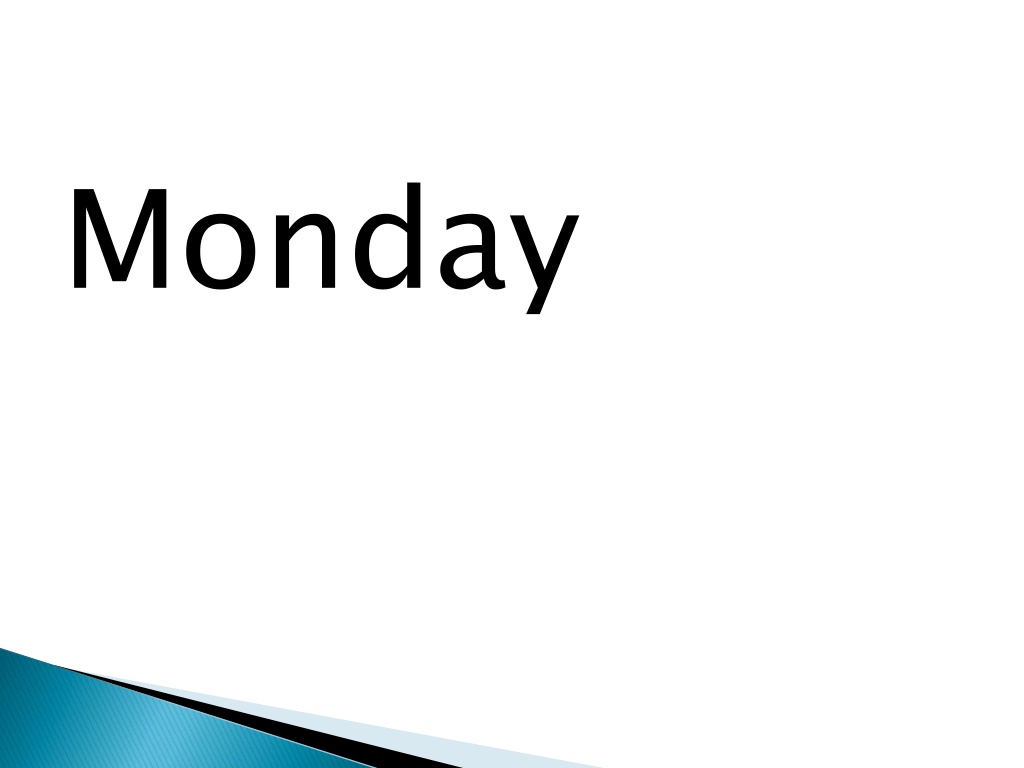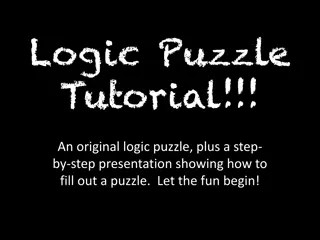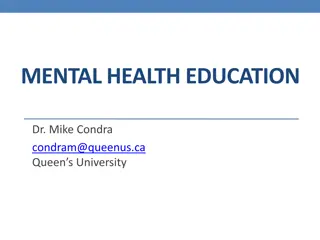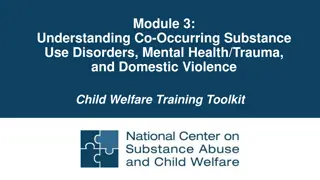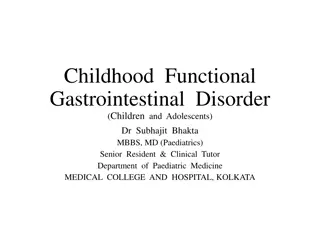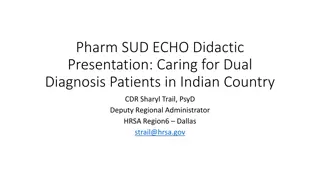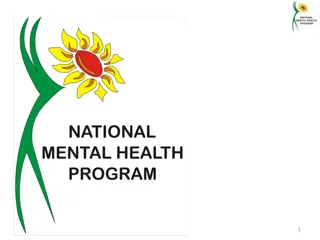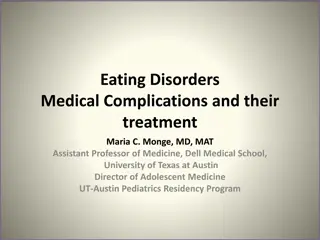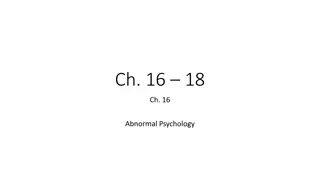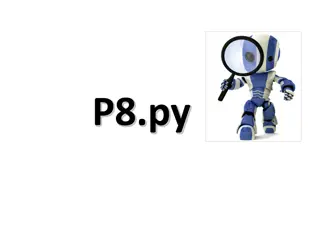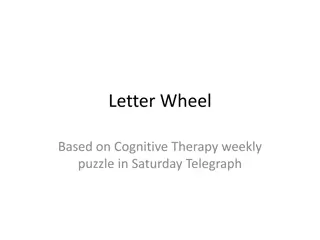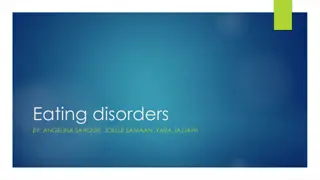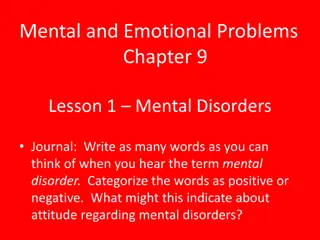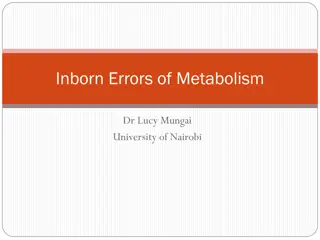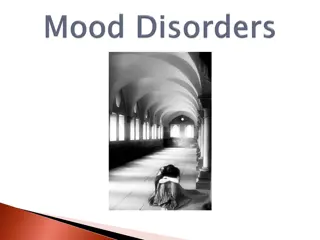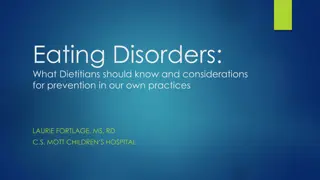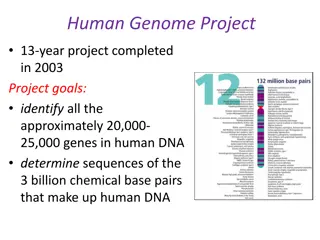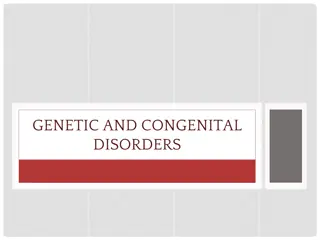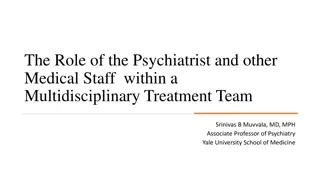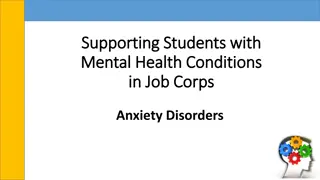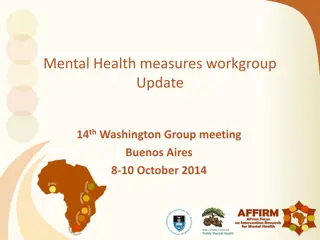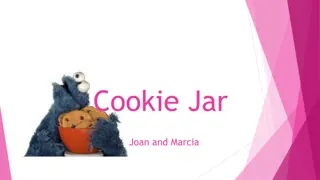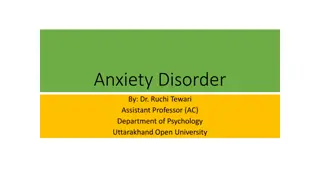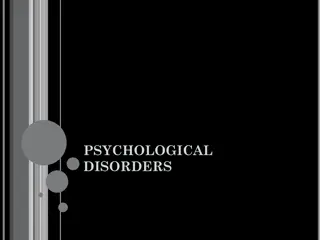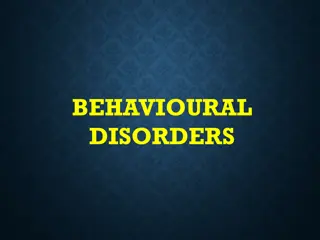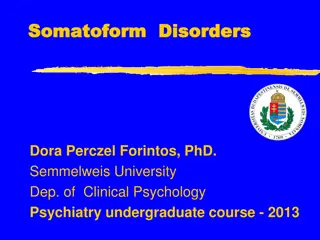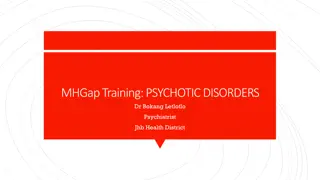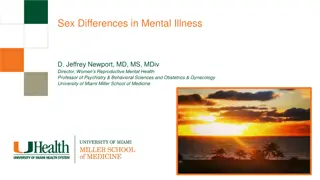Understanding Mental Disorders Puzzle Challenge
Explore the world of mental disorders through an engaging puzzle challenge where you match categories with definitions and examples. Dive into the different types of disorders like Cognitive Disorder, Personality Disorder, and more. Work collaboratively in groups, assemble the puzzle pieces accurately, and enhance your understanding of mental health complexities without using notes. Complete the task and move on to further vocabulary exercises to strengthen your knowledge.
Download Presentation

Please find below an Image/Link to download the presentation.
The content on the website is provided AS IS for your information and personal use only. It may not be sold, licensed, or shared on other websites without obtaining consent from the author. Download presentation by click this link. If you encounter any issues during the download, it is possible that the publisher has removed the file from their server.
E N D
Presentation Transcript
1.A disorder in which a persons brain deteriorates 2.A disorder in which a person s patterns of thinking, feeling, and acting interfere with daily living 3.A mental disorder in which a person has a compelling need to starve, to binge, or to binge and purge 4.A disorder in which a person regularly violates the rights of others and breaks social rules 5.A disorder in which there is a breakdown in logical thought processes 6.A disorder in which a person has symptoms of disease but no physical cause can be found 7.A mental disorder involving moods that are extreme 8.A disorder in which real or imagined threats prevent a person from enjoying life A. Anxiety Disorder B. Somatoform Disorders C. Mood Disorders D. Cognitive Disorder E. Conduct Disorder F. Schizophrenia G. Eating Disorder H. Personality Disorder
Assignments Due: 1. Lesson 8/9 Vocab DUE TUESDAY Mon Feb 4, 2019 1. Lesson 8/9 Vocab DUE TUESDAY Today s Agenda: 1. Warm-up 2. Mental Disorders Puzzle 3. Lesson 9 Vocab Essential Question: What are the categories of mental disorders? Objective: I will be able to match each category with it s definition and examples.
You may choose your own groups You can work in groups of 2-3 NO MORE THAN 3 in a group! Cut out the squares and put them together with the right name, definition, and examples Glue them to the blank paper DO NOT USE YOUR NOTES!!!! If you have your notes out, you will get a zero for the assignment!
When you are done with the puzzle: Name sure your names are all on the paper Turn it in to the class basket Get out your Lesson 8/9 Vocab sheet (we did lesson 8 last week) Complete the Lesson 9 side Page 82 Turn it in to the class basket If you do not finish in class, it is homework!
If you did not already turn in your Lesson 8&9 vocab worksheet turn it in BEFORE you start your warm-up WITHOUT LOOKING AT YOUR NOTES: Try to write down the 8 categories of mental disorders You will need a textbook today, so grab one from the shelf!
Assignments Due: 1. Lesson 8/9 Vocab Due TODAY 2. Permission Forms Due Friday 50 points Tue Feb 4, 2019 Today s Agenda: 1. Warm-up 2. Pass out permission forms 3. Finish Unit 2 Notes: Anger and Stress Management Essential Question: How can I manage my stress and anger? Objective: I will be able to list several anger and stress management.
Must have a form from EACH and EVERY student! DUE by FRIDAY, February 8th WORTH 50 points If you do not return a permission form or your parents do not wish for you to participate in the program, you will have an alternate assignment and will not be allowed to stay in the classroom. The program dates are Feb 11th 21st
FIRST person in each row, get textbooks for your row Turn to page 95
Emotion: A specific feeling Mind-body Connection: the relationship between a person s thoughts, emotions, and bodily responses Psychosomatic Disease: a physical illness or disorder caused or worsened by an emotional state
Hidden Anger: Anger that is not recognized and is expressed in inappropriate ways Hostility: A chronic state of anger Projection: blaming others for actions or events for which they are not responsible Displacement: the releasing of anger on someone or something other than the cause of anger
Anger Management Anger Management Skills Skills 1 2 3 4 5 6 7 8 9 10 11
General Adaptation Syndrome a series of body changes that result from stress 1. Alarm Stage - 2. Resistance stage 3. Exhaustion stage -
Anger-management Skills Serotonin Adrenaline Psychosomatic Disease 1. The response of the body to the demands of daily living is ________. 2. _________ is a specific feeling such as anger, sadness, happiness, or anxiety. 3. The second phase of the general adaptation syndrome is ________________. 4. Healthful ways to express your feelings when you are irritated or annoyed are called ___________________________. 5. ___________ is anger that is not recognized and is expressed in inappropriate ways. 6. The hormone that is secreted to prepare your body to react in times of stress or emergency is _________________. 7. ___________ is a chronic or constant state of anger. 8. A series of body changes that result from stress is called the _____________________. Resistance Stage Hostility Hidden Anger Exhaustion Stage Stress-Management Skills General Adaptation Syndrome Stress Emotion Mind-Body Connection Alarm Stage
Assignments Due: 1. FRIDAY - Unit 2 test 2. Permission forms due Friday 50 points!! Wed/Thu Feb 6/7, 2019 Today s Agenda: 1. Warm-up 2. Pass back papers 3. Update Unit 2 Tracking Sheet 4. Ted Talk Videos 5. Match game Essential Question: What have I learned about Mental-emotional? Objective: I will assess my knowledge of mental and emotional health.
Must have a form from EACH and EVERY student! DUE by FRIDAY, February 8th WORTH 50 points If you do not return a permission form or your parents do not wish for you to participate in the program, you will have an alternate assignment and will not be allowed to stay in the classroom. The program dates are Feb 11th 21st
4 = 18-20 3 = 16-17 2 = 14-15 1 = 12-13 0 = 11 or less
4 = 15-16 3 = 13-14 2 = 12 1 = 10-11 0 = 9 or less
https://www.ted.com/talks/thomas_insel_to ward_a_new_understanding_of_mental_illness http://www.ted.com/talks/elyn_saks_seeing_ mental_illness https://www.youtube.com/watch?v=VYs05qP ycYQ
Stress Self-Control Social-Emotional Booster Mental Disorder 1.A(an) _____________ is an action when people confront an addict and try to get them treatment. 2.A return to a previous behavior is called a(an) ____________. 3._______________ is a person s beliefs about his or her worth. 4.An interpersonal contact that causes a person to feel discouraged or to choose a wrong behavior is a(an) _____________________. 5.______________ is the degree to which a person regulates his or her own behavior. 6.A standard or belief is a _____________. 7.____________ is the way the body responds to the demands of daily living. 8.A behavioral or psychological syndrome or pattern is a ___________________. 9._____________________ is the series of body changes that result from stress. 10. A person s _____________ is shown by his or her use of self-control to act on responsible values. Intervention General Adaptation Syndrome Value Self-Esteem Social-Emotional Pollutant Anger-Management Skills Relapse Self-Respect Character
Assignments Due: 1. Unit 2 Test - TODAY Fri Feb 8, 2019 Today s Agenda: 1. Warm-up 2. Review Time 3. Unit 2 Test 4. Unit 3 Pre-test Essential Question: What have I learned about Mental-Emotional Health? Objective: I will assess my knowledge of mental-emotional health.
Must have a form from EACH and EVERY student! DUE by FRIDAY, February 8th WORTH 50 points If you do not return a permission form or your parents do not wish for you to participate in the program, you will have an alternate assignment and will not be allowed to stay in the classroom. The program dates are Feb 11th 21st
1. Study for the test Good Character Traits Handout Notes Packet Lesson 8/9 Vocab
Name Class First and last name Period # Date Quiz 2/8/19 Unit 2 Test After you are done: Turn in your test and your bubble sheet Grab a Tracking Sheet for Unit 3 Complete the Pre-test on the back side
